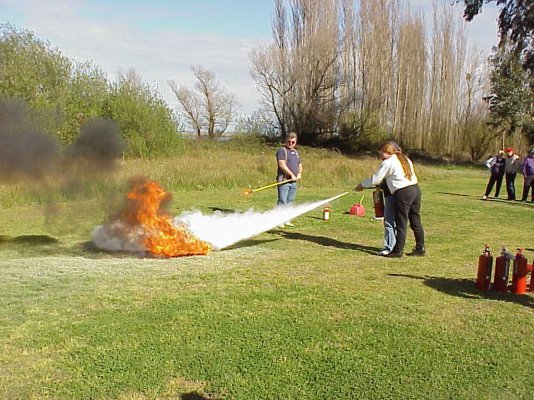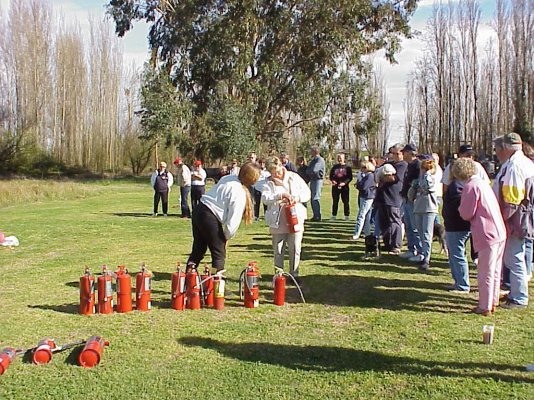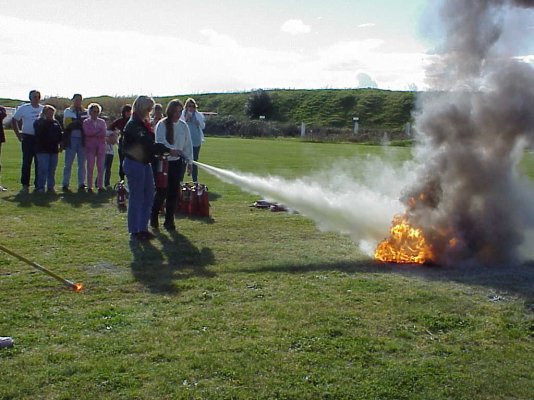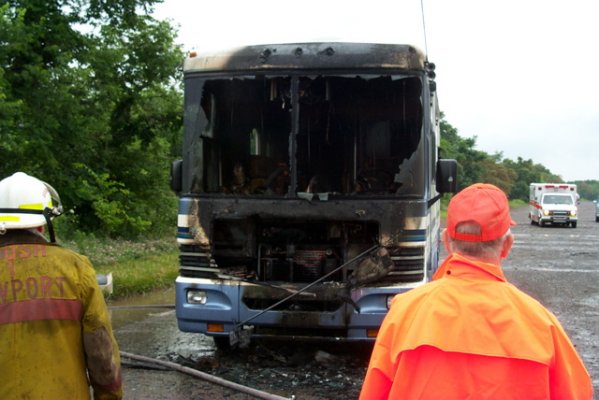Tom
Administrator
- Joined
- Jan 13, 2005
- Posts
- 51,896
I cringe at the thought of an on-board fire and was empathetic to the woman and child rescued from a burning boat a couple of days ago (typical CNN 5-second clip, didn't catch all the details).
Do you carry at least the minimum required number and type of fire extinguishers on board? Do you know how to use them? I've attached a few photos from periodic fire extinguisher training conducted by our boat club. The trainers are active fire fighters at an oil refinery and one of them is a firefighter trainer. They are also active boaters. They provide classroom training in addition to hands-on training putting out fires with different kinds of fire extinguishers.
The fire in the photos is a pan of gasoline deliberately lit (from a safe distance).
Do you carry at least the minimum required number and type of fire extinguishers on board? Do you know how to use them? I've attached a few photos from periodic fire extinguisher training conducted by our boat club. The trainers are active fire fighters at an oil refinery and one of them is a firefighter trainer. They are also active boaters. They provide classroom training in addition to hands-on training putting out fires with different kinds of fire extinguishers.
The fire in the photos is a pan of gasoline deliberately lit (from a safe distance).




